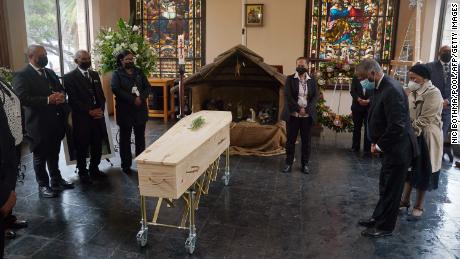Desmond Tutu laid to rest at state funeral in South Africa

Tutu Tutu’s funeral was limited to just 100 people, in line with current South African government Covid-19 regulations. St George’s Cathedral has appealed to South Africans to attend the services in their local communities instead of traveling to Cape Town. Events were planned throughout the country to give South Africans the opportunity to collectively mourn ‘”the Arch,” as he was known, while still practicing social distancing.A week-long remembrance began Monday with the ringing of the bells at St. George’s Cathedral, a church famous for its role in the resistance against apartheid rule. St. George’s held a special place in the late archbishop’s heart, so much so that he requested his ashes be interred there in a special repository.On Wednesday, several religious leaders gathered outside Tutu’s former home on Vilakazi Street — Tutu was born October 7, 1931, in Klerksdorp, a town in South Africa’s Transvaal province, the son of a teacher and a domestic worker. Tutu had plans to become a doctor, partly thanks to a boyhood bout of tuberculosis, which put him in the hospital for more than a year, and even qualified for medical school, he said.But his parents couldn’t afford the fees, so he turned to teaching. “The government was giving scholarships for people who wanted to become teachers,” he told the Academy of Achievement. “I became a teacher and I haven’t regretted that.”However, he was horrified at the state of Black South African schools, and even more horrified when the Bantu Education Act was passed in 1953 that racially segregated the nation’s education system. He resigned in protest. Not long after, the Bishop of Johannesburg agreed to accept him for the priesthood — Tutu believed it was because he was a Black man with a university education, a rarity in the 1950s — and took up his new vocation. He was ordained in 1960 and spent the ’60s and early ’70s alternating between London and South Africa. He returned to his home country for good in 1975, when he was appointed dean of St. Mary’s Cathedral in Johannesburg. As the government became increasingly oppressive — detaining Black people, establishing onerous laws — Tutu became increasingly outspoken.CNN’s Larry Madowo, Chandler Thornton and Niamh Kennedy contributed reporting.





